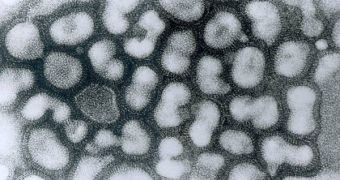Experts can relax a bit now, the World Health Organization said on Thrusday, the Influenza A type H1N1 viral strain is not currently mutating, and it keeps a constant configuration for the moment. In the midst of a global swine flu pandemic, the world is in fear over the fact that the viral agent might mutate in the tropical regions, where it endures around the year. It could then return at mid-latitudes, and wreak havoc among patients who are not prepared to face it. That's why it's absolutely imperative for geneticists and other researchers to crack the virus and create new vaccines against it, before it changes its make-up, Reuters informs.
“The virus is still very stable. But as we all know the influenza virus is highly unpredictable and has great potential for mutation,” WHO Director Margaret Chan told reporters in Moscow, after having a meeting with Russian Health Minister Tatyana Golikova. At this point, the pathogen has not yet mixed its genes with those of the avian flu virus, although that is a distinct possibility. Such a combination could have a very high mortality rate, specialists fear, as the human immune system is not equipped to handle such aggressive and resistant mutations.
Both strains needed constant monitoring, the WHO Director added. “We would need to look at how they are behaving in southern hemisphere countries to see whether the H1N1 and the usual seasonal influenza virus would reassort. So far we have not detected any signal. Another important thing we need to monitor is H1N1 and H5N1, which is endemic in some countries in Asia and the Middle East. We would like to see whether there will be any change. Again, we did not detect any signal that there is any reassortment,” Chan said at the news conference.
“In prevention and reducing the risk of this infection there is of course a lot of attention given to antivirals and vaccines. But we must not forget there are what we call non pharmaceutical measures which are very effective. These are simple measures that each individual can take to protect themselves: don't smoke, get enough rest, eat a balanced diet to support a high level of immunity and frequent washing hands with water and soap,” the expert concluded.

 14 DAY TRIAL //
14 DAY TRIAL //